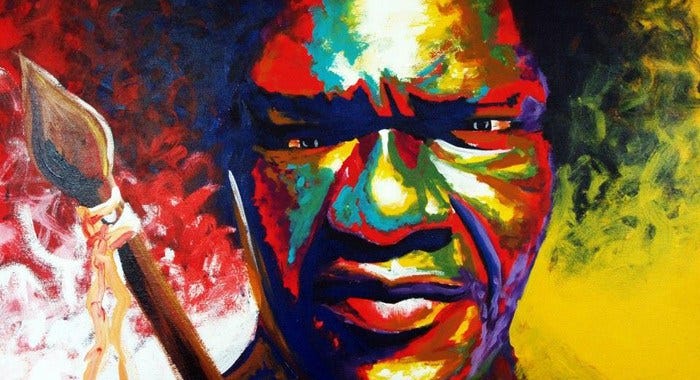The Garifuna people commemorate the death of their hero, Joseph Chatoyer, every March 14 in St. Vincent and the Grenadines. Locals play drums and conch shells, while practicing war dances and singing songs to keep alive the memory of the Garifuna resistance against the British colonialists.
Joseph Chatoyer, better known as “Satuyé”, represented the hope and the voice that inspired resistance against British oppression and colonization; his actions were recognized not only in Saint Vincent and the Grenadines, but also in Honduras, Nicaragua and Belize.
Chatoyer is remembered as a great warrior with exceptional leadership qualities, which also made him worthy of the respect of other Carib leaders and even European slave-owning colonialists who fought against him.
The role of Satuyé in history
It is not a secret the intentions, even today, of the empires to control the Caribbean lands; that is why Great Britain and France raided St. Vincent countless times, always coming up against the Caribs, who repelled their attacks.
In 1763, a treaty was signed in Paris to divide up some Caribbean islands, in which England intended to take possession of St. Vincent, but it was not possible to seize the island thanks to the heroic struggle of the Garifuna people and their leader Joseph Chatoyer.
Despite the defense of the native people, raids continued, reason why Chatoyer’s “army” began an armed uprising which resulted in the signing of an agreement between the British and the Garifunapeople.
This agreement represented a resounding victory, since it was also the first agreement that the British signed in the Caribbean with a group of non-white people. However, there was no interest by the British to respect such agreement and this triggered a second war, but this time the Garifuna people were supported by a group of French people opposed to the British.
Although the English outnumbered the Garifuna in weapons, strategies and forces, the locals fought heroically to defend their territory, until the night of March 14 when Chatoyer was killed in battle, leaving his brother in charge, but Chatoyer’s death resulted in the flight of the French forces, the defeat of the rebels and the banishment of the Garifuna people to Baliceaux Island.
Chatoyer is currently considered a symbol of resistance, remembered for making the British sign the first agreement with African descendants and not with whites. He is admired for his strength and resistance against a social order premised on the idea that “blacks” were only slaves.
